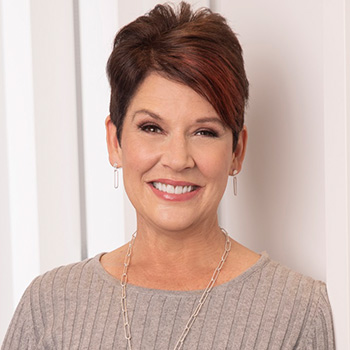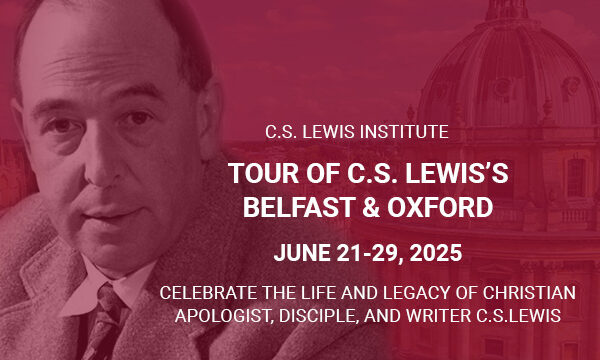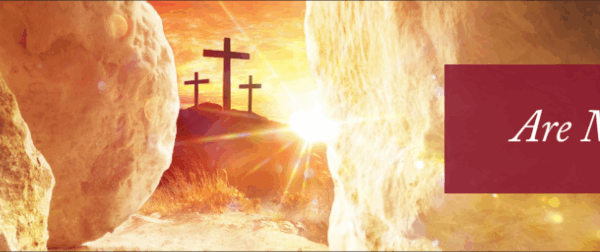Back to series




Is God Just, Not Fair?
VOLUME 10 NUMBER 2 ISSUE OF BROADCAST TALKS (PDF)
BROADCAST TALKS presents ideas to cultivate Christ-like thinking and living. Each issue features a transcription of a talk presented at an event of The C.S. Lewis Institute.
The following is adapted from an interview with Jennifer Rothschild, conducted by Joel Woodruff, President of the C.S. Lewis Institute, on September 30, 2024, at a C.S. Lewis Institute livestream event titled “Is God Just, Not Fair?”
Hello, I’m Joel Woodruff, president of the C.S. Lewis Institute, and it’s my pleasure to welcome you to this C.S. Lewis Institute event titled “Is God Just, Not Fair?” with Jennifer Rothschild.

Have you ever questioned the fairness of God? Or wondered why God allows us to go through painful experiences? Are you hurting from the loss of a loved one, a broken relationship, or going through a serious illness and wondering, “Does God care about me? Or even hear my prayers?” If you’ve wrestled or are wrestling with questions like these, then I encourage you to listen closely as we hear from someone tonight who has not only taken the time to study and think deeply about these important issues, but also is someone who has walked through valleys of pain and suffering and has come out on the other side with hope. That’s my sister-in-Christ, Jennifer Rothschild.
Jennifer, we’re going to be dealing with some tough questions here. To set the stage, it might be helpful first to learn about your life and how you became a follower of Jesus Christ.
I had the privilege of growing up in the church. My dad was a pastor. The claims of Christ, the love of God’s people — that was all very natural to me growing up. But I did come to a time when I was about nine when I began to understand the personal nature of the claims of Christ — that it was personal toward me. The sweetest thing happened: I grew up in a church tradition where we used to have revivals. For four or five nights in a row, everybody would attend church. From the Baptist hymnal, you would sing “Just as I Am” about 42 times, until people came down to the altar. I was standing there next to my grandpa. The evangelist had shared the claims of the gospel of what Christ did for us personally as our advocate before the Father, as the payment for our sin. And my response was to respond personally. So I started tapping on my grandpa. “Papa, I need to go. Papa, I need to go.” What I meant was I needed to go to the altar because I wanted to ask Jesus into my heart. Well, my papa thought I needed to go to the bathroom. He kept saying, “No, no. You can wait.” So I remember getting home that night and telling my dad, “I wanted to ask Jesus into my heart and ask Him to forgive my sins.” I think it was just God’s kindness, because my dad sat there with me in my yellow bedroom and prayed with me that night when I received Christ. I’ve always remembered that experience, because truly the reality of Christ’s presence in my life was so real.
Lewis was absolutely right. I’ve read many Christian books on suffering — I read sixty-plus when I was writing my book on the problem of evil and suffering, If God Is Good — and many of them say almost nothing about heaven, even the Christian books. They’ll mention it in passing; I truly believe that a weak understanding of heaven results in a faith that can’t stand up in the face of suffering. That’s when this gets very practical in every way. Lewis had left atheism and agnosticism and come to embrace a biblical worldview, which he believed had a far greater explanatory power than his atheism. That really resonated with me.
I love the Bible. Even as a little girl, I would read the Bible every night. And you fast forward to when I was 15 years old, and I became legally blind because of an eye disease, and I could no longer see the Word anymore. So I’m so thankful for growing up in an atmosphere, where learning the Word was such a natural part of my life, because God used it to sustain me.
Wow! It’s beautiful that you came to faith as a child and experienced God’s presence in that way. But obviously, things became difficult in your life at age 15, because of your eyes. As you think about your childhood and youth, what launched your journey of thinking deeply about this question of God’s goodness as it relates to pain and suffering in the world?
At the initial stage of legal blindness because of a disease called retinitis pigmentosa, I was also told that I would continue to lose eyesight until I was totally blind. So I was forced quickly — and I believe as an act of mercy — to reconcile very quickly, “Is God good? Is God not good? Does God love me? Does He not love me? Is He trustworthy? Is He not trustworthy?” He had proven Himself through my own experience, even though it had been only a few years at that age. He had displayed who He was through my family, through people in my church. So I chose, even then, to believe He was good and to trust Him. One of the most beautiful ways I think He confirmed that in my spirit was . . . we were coming home from the eye hospital the day I had received this diagnosis. We were all quiet. I mean, when we went to the eye hospital that morning, we knew something was very wrong with my eyes, but we did not know that I was going to come home with a prognosis of blindness. So here’s my dad driving us home, the pastor, you know? And he was quiet. He didn’t say anything. I remember sitting in the backseat. I could see — I was looking at the back of my mom’s head, and she didn’t say anything. I don’t have to tell any woman, any parent, listening right now, what she was experiencing. You know, those prayers like, “O God, could it just be me instead?” or that fear that if one tear escaped she’d never get her composure back. I remember feeling my fingertips in the backseat and wondering, “Am I going to have to read braille someday?” And I loved art, I wanted to be an artist, realizing I wouldn’t be able to paint or to draw.
When we got home, I went straight to our old upright piano. I wasn’t a very good pianist. But that silence was broken as I started to play a song I had never played before. I could no longer see to read music. I played the song by ear. Yes, that was a gift from God, that ability to play by ear. But the greater gift to me was what I played. It’s so significant to me, because it really is the answer to your question. I played “It Is Well with My Soul.” I think God, even then, was reminding me what He had already embedded in my spirit — that while it was not well with my circumstances, it was probably not ever going to be well with my circumstances, but because of Jesus, He really had already made it well with my soul.
That’s powerful — that you were able, even at a young age, to have that kind of spiritual sense of God’s presence. When people go through hardship, I think there’s another question that pops up. We can maybe intellectually have this idea that God is good. But another question asks, “Is God fair?” How would you answer that question?
Put simply, God is not fair, but that’s the best answer any of us could get from Him. The track I have been on as I’ve matured over the years and as I’ve processed blindness and grieved the loss of my sight — because it’s not one and done — I think suffering has an ellipsis at the end of the sentence, not a period. If we’ve lost somebody, if we deal with a chronic disease, if we love somebody who struggles, it’s like, every season of life, we have to renavigate, regrieve, renegotiate. So, over the years, I’ve had to really process my experience. What intellectually I may know is true about God, emotionally I’ve still had to grapple with. So when you ask that question, “Is God fair?” . . . I’ll never forget being a young mom. Our oldest son was three years old, and my husband was in grad school. We had no money. Every Wednesday morning, there were these kids’ movies. For a dollar, you’d get popcorn, and you’d watch a movie. So my friend Becky and I took our boys to these movies. Well, I couldn’t see the movie, of course, and even if I could have seen the movie I would have been bored, okay? So after the second time, I thought, “I’m going to bring something with me to listen to.”
This was back in the day — I had a cassette tape that someone had given me that I had intentionally avoided listening to because I didn’t want to hear it. I knew what this woman was going to talk about, and I was grappling with my own frustration about blindness, and I didn’t want to hear her story. But either way, I don’t know why, just God’s kindness, I picked it up that day. As soon as the movie started, in the darkness of the theater, I slipped in a little earplug and started listening to this story of a woman named Marolyn Ford, who, just like me, had lost her sight as a teenager. She went through all the details of being a mom and not being able to see and not being able to drive and not being able to see your child when injured. I could relate to everything she said. She talked about how many times they would kneel, she and her hubby, by the bed and just pray. And then she told the story about how, one night, when they said, “Amen,” she could see.
Wow!
And it was a miracle, which was amazing! I remember sitting in that theater. I began to weep, for a couple of reasons. One, I was just like, “Wow, God! You did that! You can do that!” and then the tears tasted more bitter because it was like, “Well, yeah. You can do that, and You didn’t do that for me. I’ve asked, too, and it’s just not fair!” That day, I was saying those words over and over, “God, that’s just not fair!” And then, “God, You’re just not fair. You would heal Marolyn, but you’re not going to heal me. You’re just not fair.” Something about repeating that statement allowed me to realize, “No! You’re not fair, God, but You’re just,” and just means He is right and He is perfect, according to Scripture, in all of His ways. So what does not feel fair to me, because He healed Marolyn, but He has not yet healed me, does not in any way diminish the fact that He is just and He’s right in all of His ways.
It was like I stared straight into the face of blindness and straight into the face of healing, and I saw the goodness of God in both — as painful as it was, and it was painful! So anytime anyone tells a story and it sounds so tidy . . . Anyone listening who’s in the process, this can still be true, but that doesn’t mean it’s tidy. And that doesn’t mean it’s wrapped up in 60 seconds of explaining it. It’s something that we live daily and we work out. But I do remember that being a significant moment for me, helping me to rest in the fact — “You know what? I don’t need God to be fair to me. I need to rest in His ways that are perfect, even when they don’t feel perfect for me.” And it gave me a lot of freedom. It really did loosen some chains that had been binding me in bitterness.
How would you define, I suppose, that difference between God not being fair but God being just? What is the difference between fairness and justice?
I think we have to look at it from two frameworks. In the way we use those words in our vernacular, fairness usually includes equality. What God does for Joel, He must do for Jennifer. If God heals Marolyn, God must heal Jennifer. You know, there’s a great story in the book of Matthew, the parable that Jesus tells about the landowner who goes and hires all these guys, and he goes early in the morning, and he promises them a denarius to work all day. And then he keeps going back every couple of hours, so by the end of the day, he has hired some guys who’ve worked only for an hour. Then when he goes to pay everybody, they all get the same amount. Well, the guys who were hired first, of course, grumbled because that’s not fair. Why? Because it wasn’t equal. “We worked harder. Therefore we should get more.” And the landowner says to these servants, “Why are you grumbling? Isn’t it my right to do with my money what I choose?” And the way I hear that when we’re understanding the difference between justice and fairness is “Isn’t it God’s right to act according to His word?” Just as in that parable, the landowner said, “I promise you I will give you a denarius to come work for me.” Well, it would be unjust if the landowner had not kept his promise. God has always been just to us. He keeps His promise. He is righteous and right in all His ways. That doesn’t always come out equal for His servants. But does He have the right? Absolutely He does, because it is just character to act justly.
So I know it’s hard. But then when you think about it, just think about this: If we really wanted fairness, according to our definition from God, we would have to apply that to our suffering, just as we would need to apply that to our sin. Here’s what I mean: So God is not fair to us when it comes to our sin. I mean, that’s what the book of Psalms tells us. He does not treat us as our sins deserve, nor does He pay us according to our iniquity. In other words, what is fair to us for the violation of our sinful nature and our choice to sin would be separation from God, wrath, and punishment. But God did not treat us that way. He was not fair to us. So if I’m going to demand, “God, You need to be fair to me when it comes to my suffering. If you heal Marolyn, then You need to heal me,” then I need to expect the same standard of fairness when it comes to sin. “Well, then, God, You also need to be fair to me when it comes to my sin and treat me as my sin deserves.”
I don’t want that. I want God to be just. And He chose, through His justice, to place my sin and your sin on Jesus. And that’s where God’s wrath went because of the justice of God. So we do want to lean and rest upon God’s just character and thank Him that He’s not fair to us.
That’s really an amazing truth as we look at this idea of unfairness. First, I think we can all agree that equality isn’t something that’s realistic in this world, anyway. But then the idea of seeing that God isn’t fair with our sin and that He has provided a way through Christ to receive forgiveness of sin, that’s powerful. I love the way you flip that, because that really is a wonderful perspective and a way to look at the fairness of God. We really wouldn’t want God to be fair in that way, for sure.
We’re certainly grateful for the work of Jesus on our behalf. So thank you for sharing that. Theologically speaking, and intellectually, it’s a very powerful argument, but how do you bring this down for people who are going through suffering or experiencing pain? What are some practical ways to deal with what seems to be unfair in their lives? What have you found helpful in responding to the unfairness in your own life — being blind, experiencing suffering, and so forth?
When questions of fairness come up, we can really phrase them and put them in three little letters: Why? “Why’d You let this happen, God?” Or even, “Why me?” I remember one time getting an email from a young man . . . he had emailed me many years before, asking me to please pray for him regarding his cancer. Over the years, we’d had this correspondence, and . . . he had been healed of his cancer. This was a beautiful thing. Well, a year later I get an email from him, and all he wrote was “I have faith, and now I have cancer again, and I don’t know how to have both.” Man, I remember being so torn up, thinking, “Lord, this isn’t fair! I mean, You healed him once. Why did You let it come back?” My feelings about blindness and asking why? are never too far away. “Well, why? Why cancer and why blindness and why all this? Why, Lord?” And it was as if I saw the image of the cross in my own mind’s eye at that moment, and I asked a different question. I said, “Why grace?” “Why grace? Why forgiveness?”
Okay, so my first practical way to handle it is to thoroughly ask the question why? Not just, “Why, God, did You let this happen?” or, “Why me?” But let’s go further. “Why grace, Lord? Why did You give us grace? God, why forgiveness? Why do You allow me to have peace with You?”
Shifting and broadening the question helps it be less self-centered. I will say this: When I’m asking, “Why me?” I’m never going to get a satisfying answer, because self can’t satisfy self. Only God can satisfy my deepest needs. If I can shift my question to something where it’s going to point me closer to what Habakkuk did . . . In the book of Habakkuk, chapter 1, he’s like, “How long, O Lord? Why do You keep letting this happen? Why do You let the unjust, the bad guys, mess with God’s people?” Of course, I’m radically paraphrasing. Why, why, why? Well, then he gets to the very end of Habakkuk, chapter 3, and it’s this beautiful hymn of praise. It’s like he’s looking at his whole life. It’s like this young man, whose name was Greg, looking at his cancer or me looking at my blindness or whatever it is you’re dealing with, looking at your thing, and Habakkuk says, “Though the fig tree may not blossom,
though there’s no fruit on the vine, though the calves, there’s none in the stall, and the flocks have all been cut off from the fold, yet will I praise You.” It’s like he shifts from the why question and the “Why me?” to the “Hey, why not focus on what God has done?” Instead of focusing on what I’ve lost, let me see what God has done and what I have gained, even if I lose everything.
I think that sometimes when we talk like this — at least I do, because I tend to be a type A — we’re looking for the formula. Okay, “What was that formula?” I don’t think there is a formula. I think there’s faith, and it is in the reduction of ourselves, when we, like John, say to the Lord, “May I decrease and You increase.” I think that when there’s less self, we can better handle what seems to be unfair and the relentless suffering. And then I have to throw in a C.S. Lewis quote — I just have to — because he has helped me so much with processing.
We’re all for that!
One of my favorite books is Till We Have Faces. And at the very end of the book — I listen on audio, of course, because of blindness, but I’m assuming it’s close to the last page — the main character gets to the very end of this process where she’s been asking questions of (this is a myth, so) the gods, you know? She’s trying to figure out why it all goes on as it does, and finally she comes to this brilliant conclusion; I love the way C.S. Lewis phrases it. He says, “I know now, Lord, why you utter no answer. You are yourself the answer. Before your face questions die away. What other answer would suffice?” I think that’s it. I mean, every question we ask, there’s never going to be an answer that’s really satisfying. “God, why did You let this happen?” If He gave you a doctoral dissertation of why He let it happen, that would not satisfy us. Because what really satisfies us is God Himself and the relationship with Him and the comfort that comes from that.

That’s powerful. I love that quote from C.S. Lewis and the way you really brought it to Jesus. You’ve mentioned several times, and I know I’ve questioned this sometimes, where I’ve seen people healed of physical or emotional ailments and then others who are not healed. How could you help people who are dealing with that question? Why do you think God chooses to heal some and not heal others?
I don’t know. I think that is probably the wisest thing any of us could say, because if God wanted us to know the answer to that question, He would have given it to us. My speculation, through experience, includes a couple of things: In the New Testament, suffering is referred to as something that is granted, almost as if it’s a gift. This is very hard to understand, because it does not feel like a gift, but if we can see within the sovereignty of God that He allows certain people to carry certain suffering, that because He is good, there has eventually to be some good from it, okay? One thing that has helped me is 2 Corinthians 12:10. This is the passage where the apostle Paul talked about having a thorn in his flesh that he asked God to remove. God did not remove the thorn. That thorn could have been cancer. We know it wasn’t for Paul, but it was some kind of physical ailment. So whatever it is you’re dealing with, it could have fit into Paul’s category of a thorn, because it’s painful. And he gets to verse 10, and he’s got this thing in his life that God has not chosen to heal him from or deliver him from or remove, and he says, “For Christ’s sake, I delight in weaknesses, in insults, in hardships, in persecutions, in difficulties. For when I am weak, then I am strong.”
I’ll be honest. That verse kind of bothered me, because I was like, “Well, I don’t delight in my blindness at all. I think it’s hard, and if God would remove it, I would be dancing on a stage singing about it.” But the Greek word — I did some research — in 2 Corinthians 12:10, translated into our English word delight, is the word eudokeō. It means “for one’s good pleasure” or “it seems good.” So as I filter my blindness or any suffering that God has not yet chosen to heal or deliver me from, Paul is saying basically, “I see this hardship, this insult, this persecution, this difficulty. I see this for my good pleasure. It seems good.” In other words, “There’s going to be some good from it. I’m going to eudokeō this. I’m going
to delight in it. I’m not going to resist it. I’m not going to resent it. I’m going to say, ‘Okay, God. If You’ve allowed it and You’re good, then show me the good. Make it good.’”
And then — you know what’s interesting? The first three words of that passage. I don’t think I noticed for a while, because I was so focused on eudokeō, delight. But that passage from 2 Corinthians 12:10 says, “For Christ’s sake.” Well, that got me, because here’s the thing: God hasn’t healed me. I don’t know if He will before I die. But for Christ’s sake, can I eudokeō? Can I delight? Can I endure what seems to be a hardship, persecution, difficulty? Can I, for Christ’s sake? Absolutely! There are days when, for Jennifer’s sake, I am absolutely not interested. But for the sake of Christ, who’s done so much for me, absolutely!
And so my greatest encouragement to someone — if you’re going through it and God hasn’t removed it, would you ask Him to increase your love for Him? Because Christ has done so much for you that, even in context of what we could experience — distance from God, abandonment from Him, a lack of forgiveness, His full wrath, even suffering within that context that we don’t like or we wish we didn’t have or we feel like we don’t deserve — even that is something that we can delight, that we can eudokeō for Christ’s sake, because He’s done so much for us.
So that’s just philosophical. But I want to give you three things that are very practical, okay?
Sure.
I will tell you three things that I’ve learned to do. Sometimes we can think things too much and we just need to live them.
(1) Cry when you hurt. If it hurts, cry. It is not godly to hold it in and act like suffering doesn’t hurt. If it hurts, cry about it. In other words, cry out to the Lord, express your emotion. You need to talk to a counselor? Go to a counselor. Jesus Himself wept. It is godly and biblical to express your emotions. You just want to always do it in such a way that your emotions lead you to a deeper truth, they don’t become the dead end. So if it’s hard, cry when it hurts.
(2) Trust God more than your emotions. Because when we’re suffering, man, the emotion is going to be so hard. For me, I’ve struggled with bitterness. I’ve dealt with depression, shame, grief, anger. I mean, just the myriad emotions. And they are powerful, and they are real. But I’ve learned to trust God more than I trust those feelings, because those feelings are going to change, Lord willing, but He doesn’t. So try to keep those emotions, to acknowledge them. But don’t trust them ultimately like, “Well, just because I feel this way, this is how it’s going to be.” No. We can trust God more.
(3) Another principal practice is we always have a choice; choose loyalty over your own logic. When you consider what Christ has done for you — when I consider what He’s done for me, I want to be loyal to Him, even when it doesn’t make sense, even when I can’t parse it out, even when I can’t answer every question of theodicy, even when I really don’t understand why God has allowed what He’s allowed, it’s okay. I can choose loyalty over logic. My trust and faithfulness to Him is not dependent on what He chooses to reveal to me. So when we can just make that choice, “Lord, I don’t understand it, but I am going to trust Your heart,” it unclutters some of the emotional baggage that we’re starting to accumulate.
Those are very helpful practices. I really appreciate your idea of expressing the hurt and the suffering and crying out to the Lord, but then putting our trust in Him, not our emotions, and really being loyal and ultimately being a loyal follower of Jesus Christ, which is going to eventually help us and set us free in those areas. Now, just another question, somewhat related. Some people may say the reason you’re not healed, the reason you’re struggling with this, may be because you don’t have enough faith. How would you describe or define faith that the Lord calls us to? And how would you deal with the idea that our healing isn’t happening because we don’t have enough faith?
Some people, well meaning of course, have said that to me. I personally believe that it takes just as much faith in the goodness of God to accept that He may not heal you as it does to believe that He can heal you. So, again, we have to use intellectual integrity when we deal with a question like that. At the same time, we should never negate the fact that God does
heal, God can heal, and God did respond, through Christ, to people’s faith in the New Testament as a means of healing. I’m not negating that at all. Yet, if my faith or your faith were absolutely the only way that God was able to heal us, then it would be a Jennifer- or Joel-centered act, not a God-centered sovereign act. I believe that our faith honors God, but it is not our faith that fuels our healing. It is God’s mercy. 
I was in a very difficult situation one time as a speaker at a women’s conference. I had done three sessions. This was a group that by-and-large believed that if you have enough faith, you would be healed. And quite honestly, I thought, “Why did they invite me? People know I’m blind. Did they not read my bio?” Anyway, I could tell that the woman in charge wasn’t real pleased with a couple of things I’d said; she was gentle, but she disagreed with me on stage after I finished.
In the last session, I had taught out of 2 Corinthians 12, where Paul has a thorn in his flesh. I thought, “That sister up there is not going to like the fact that I’m talking about life with thorns, because she’s basically saying, ‘If you have enough faith, God’s going to remove your thorn.’” Sure enough, I finished teaching, sat down on the front row, and she said, “I would like to thank our little speaker.” I thought, “Oh, no. She is not happy!” And then she went on to say, “Every woman in this room deserves to be healed. If you believe you deserve to be healed, stand to your feet.” She kept repeating that exact phrase, and every time she repeated it, women were standing. The band came up. The music was playing. The emotion was swelling. Women were weeping. And she repeated, “Every woman in this room deserves to be healed. If you believe you deserve to be healed, stand to your feet.” Well, finally, my friend Karen, who’s traveling with me and sitting next to me — we’re on the front row, and so I can’t see what’s happening, though I have a feeling . . . I speak to her like a ventriloquist. “Karen, is everyone standing?” She said, “Everyone but us.” It was terrible! But here’s the thing: I realized — I said to her, “I can’t stand.” She said, “Neither can I.” Was that because I thought, “Well, I don’t have enough faith. God’s not going to heal me, so I’m not even going to bother.” No! It was because of how she phrased the question. And this gets back to how we started this conversation. She said, “Every woman deserves to be healed. If you believe you deserve it, stand to your feet.” The truth is I don’t deserve anything from God. What I deserve from God, I never got. I mean, thank You for Your mercy, Lord. I did not remain seated because I thought, “Well, until I get the faith formula right, God’s not going to heal me.” No! Because I really believe that, when we are obedient to Him, surrender to Him, walking with Him, we can trust Him with the details. If He wants to heal you at a church service with holy water, so be it. If He wants to do it when you’re standing in line at Starbucks, so be it. It’s a sovereign act of His mercy. His mercy is what dictates it, not something we deserve or finally are able to earn because we’ve had enough faith.
Thank you. You just summarized that brilliantly and biblically. I really appreciate your scriptural, biblical approach to this topic, because it’s one that has, I think, led many people astray just as they have sometimes misread Scripture or not read the whole of Scripture.
Now I’m going pivot in a different direction: On the trip that you and your husband and my wife and I were on last summer, in Belfast and Oxford, we were studying the life and faith of C.S. Lewis. And I have to say, you may have been the biggest fan of C.S. Lewis on the trip, which is saying something, when you have 30 people who really, really are excited about seeing Lewis’s birthplace and life sights. So a question for you: How did you become a fan of C.S. Lewis? And how have his writings helped you in developing this solid biblical understanding of God’s ways and thoughts versus our ways of thinking and acting?
I’m so grateful you asked this question. Even with blindness, for the first 20–25 years, I would struggle with ups and downs, but never full-blown depression. But about 10 years ago, it hit me hard! I just couldn’t function; that depression began to usher in a season of doubt. I had never read Lewis before. And during this season of doubt, I began to ask, “Well, is Jesus even really God? I mean, I know the historicity of Jesus, but is He really divine? Really? I just believe this because I’m a pastor’s daughter. Is this a myth of my own creation to get me through?” And it was a total dismantling. During that time, I prayed to the God who I wasn’t sure existed and said, “You’ve got to give me somebody. If You really are real, give me somebody smarter than me whom I can trust. I need somebody to trust.”
Somebody had given me, many years ago, an audiobook of C.S. Lewis. So I read Surprised by Joy and then A Grief Observed and then The Problem of Pain and on it went. As I listened to these words of a man — and many of us know his story — who grew up with experience in the church, became an atheist, and then chose to finally recognize and acknowledge theism or deism, however you want to express it, and then literally came to a love of Christ, a conversion where he was born again, and then we all know the end of his story. He grappled intellectually more than I even had the capacity to ask those questions! He became for me an authoritative guide. I remember listening to some things and thinking, “Okay, he is a ton smarter than I am. So if he can accept that intellectually, emotionally, and spiritually, then I choose to right now also.” In many ways, he really led me back to faith. He really led me back to a place where I felt like “Okay, I get it. Yes. I did believe all this. I just didn’t know how to get there and get back again.” So I call him my authoritative guide, who helped walk me back to what I knew was already true.
Do you have a particular book that’s a favorite of yours? Or essay or article of his?
I love “The Weight of Glory.” If friends haven’t read that, they need to, because it shows the beauty and the sacredness of each of us as God’s creation. I love The Great Divorce — that imaginative supposal of heaven and of how God’s grace shows up in each of our lives. Of course, I love Surprised by Joy. And then I think that’s probably where I land. I know I probably am the only C.S. Lewis lover who will say this, but I’ll go ahead and risk the ire of some. I don’t love Mere Christianity. I love using it as a resource, like a textbook, but not as a sit-down-and-read. I think it’s brilliant, and I’ve learned so much from it, but actually it’s not my favorite.
Thank you for sharing about that. There is something to that important concept that we all need someone like a Paul in our life, a Paul and Timothy relationship. Sometimes that can be a great saint or writer from the past. God can use many different people. So that’s wonderful, that the Lord used C.S. Lewis in your life to help you grapple with some of those questions.
[Video of the complete version of this talk, including Q&A, is available Here. Additional information about the topic of this talk is included in Jennifer Rothchild’s book, God is Just Not Fair: Finding Hope When Life Doesn’t Make Sense. Additional information about Jennifer’s ministry is available at: https://www. jenniferrothschild.com/.]


Jennifer Rothschild
Speaker and WriterJennifer Rothschild is a speaker and writer whose life drastically changed at age fifteen when she lost her sight. Now, more than 35 years later, she boldly and compassionately teaches others to walk by faith, not sight. She has shared her inspiring messages at conferences like Extraordinary Women, Women of Joy and Women of Faith, and on media outlets like Dr. Phil, The TODAY Show, and Good Morning America. She hosts the 4:13 Podcast and has authored 19 books and Bible studies. Amos: An Invitation to the Good Life is Jennifer’s eighth video-based Bible study with Lifeway. It follows her popular Bible studies, Take Courage: A Study of Haggai, Psalm 23: The Shepherd With Me, and Hosea: Unfailing Love Changes Everything.

 COPYRIGHT: This publication is published by C.S. Lewis Institute; 8001 Braddock Road, Suite 301; Springfield, VA 22151. Portions of the publication may be reproduced for noncommercial, local church or ministry use without prior permission. Electronic copies of the PDF files may be duplicated and transmitted via e-mail for personal and church use. Articles may not be modified without prior written permission of the Institute. For questions, contact the Institute: 703.914.5602 or email us.
COPYRIGHT: This publication is published by C.S. Lewis Institute; 8001 Braddock Road, Suite 301; Springfield, VA 22151. Portions of the publication may be reproduced for noncommercial, local church or ministry use without prior permission. Electronic copies of the PDF files may be duplicated and transmitted via e-mail for personal and church use. Articles may not be modified without prior written permission of the Institute. For questions, contact the Institute: 703.914.5602 or email us.
-
Recent Podcasts
An Honest Search for God – Dr. Jay Medenwaldt’s Story
by Jana Harmon, Jay Medenwaldt on June 20, 2025Why do people believe in God? In this...Read More
-
Moving Beyond Forgiveness to an Abundant Life
by Robert Saucy, Aimee Riegert on June 13, 2025
-
Is There Something More? – Laura Zifer Powell’s Story
by Laura Zifer Powell, Jana Harmon on June 6, 2025
-
Recent Publications
Are Miracles Possible
by Christopher L. Reese on June 1, 2025The 21st century has provoked many conversations and...Read More
-
Is God Just, Not Fair?
by Jennifer Rothschild on May 15, 2025
-
Seeking Dietrich Bonhoeffer
by Joseph A. Kohm on April 29, 2025
0
All Booked
0.00
All Booked
0.00
All Booked
22904
GLOBAL EVENT: 2025 Study Tour of C.S. Lewis’s Belfast & Oxford
https://www.cslewisinstitute.org/?event=global-event-2025-study-tour-of-c-s-lewiss-belfast-oxford&event_date=2025-06-22®=1
https://www.paypal.com/cgi-bin/webscr
2025-06-22

Next coming event
Days
Hours
Minutes
Seconds
GLOBAL EVENT: 2025 Study Tour of C.S. Lewis’s Belfast & Oxford
On June 22, 2025 at 12:00 pmat Belfast, Northern Ireland & Oxford, EnglandCategories
Speakers

Jennifer Rothschild
Speaker and Writer
Team Members

Jennifer Rothschild
Speaker and WriterJennifer Rothschild is a speaker and writer whose life drastically changed at age fifteen when she lost her sight. Now, more than 35 years later, she boldly and compassionately teaches others to walk by faith, not sight. She has shared her inspiring messages at conferences like Extraordinary Women, Women of Joy and Women of Faith, and on media outlets like Dr. Phil, The TODAY Show, and Good Morning America. She hosts the 4:13 Podcast and has authored 19 books and Bible studies. Amos: An Invitation to the Good Life is Jennifer’s eighth video-based Bible study with Lifeway. It follows her popular Bible studies, Take Courage: A Study of Haggai, Psalm 23: The Shepherd With Me, and Hosea: Unfailing Love Changes Everything.





